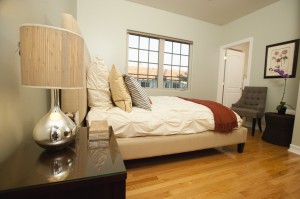 There are many treatment options available to those who have been diagnosed with Borderline Personality Disorder (BPD) and wish to begin the process of recovery. One such option is residential BPD treatment.
There are many treatment options available to those who have been diagnosed with Borderline Personality Disorder (BPD) and wish to begin the process of recovery. One such option is residential BPD treatment.
For some people with Borderline Personality Disorder, it can be exceptionally difficult to focus on therapy and recovery while simultaneously coping with day-to-day life and troubled interpersonal relationships. On occasion, we all struggle to handle everything that life throws our way. For a person with BPD, the ups and downs of a busy lifestyle can be overwhelming and cause such great emotional dysregulation that it impairs their ability to integrate the concepts of BPD therapy into their relationships.
Focus on BPD Recovery
Residential BPD treatment offers a way for people with Borderline Personality Disorder to completely immerse themselves in the healing process and focus exclusively on recovery. By removing the stressors and triggers of everyday life, residential BPD treatment creates the space patients need to gain greater perspective and understanding about the ways in which BPD is negatively impacting their lives. The structure provided in a residential BPD treatment center can be a welcome respite from the chaos many people with BPD experience in their outside lives.
A complete and accurate diagnosis, coupled with the right medications and therapy, is the foundation of any effective course of Borderline Personality Disorder treatment. While in residential BPD treatment, people with Borderline Personality Disorder will receive individual attention from a therapist several times a week. Therapists may treat BPD using such therapies as Dialectical Behavior Therapy (DBT) and Mentalization-Based Therapy (MBT).
In addition to attending individual therapy sessions several times a week, residents will participate in group therapy sessions. Group therapy in residential BPD treatment can include mindfulness groups, yoga therapy, DBT skills groups, and art therapy.
Any co-existing psychiatric disorders, such as eating disorders, substance abuse, or anxiety disorders, will be identified and addressed accordingly. Thorough assessments will be made regarding what medications a patient is taking or may need to take.
The comprehensive approach to Borderline Personality Disorder treatment offered in residential treatment programs may integrate nutrition, exercise, and physical therapies such as massage and acupuncture with psychiatric therapies to give patients the most well-rounded and holistic treatment possible.
Why Residential BPD Treatment?
The primary goal of residential Borderline Personality Disorder treatment is to help patients acquire the life skills necessary to transition back into their regular lives and function independently. While in a supportive and nurturing residential environment, they will learn how to identify their problem behaviors, manage their BPD symptoms, and improve their interpersonal relationships.
Borderline Personality Disorder patients who enter residential BPD treatment and complete a course of care in this environment often transition into day treatment or outpatient treatment as they achieve a greater level of independence and learn to effectively apply the skills acquired in residential BPD treatment.



